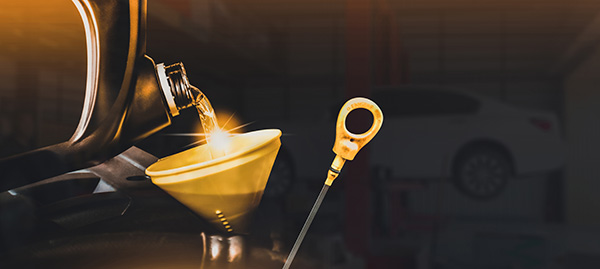
When it comes to car maintenance, oil changes are one of the simplest yet most essential tasks to keep your engine running. But with so much conflicting advice out there, it can be hard to know when to get an oil change, what type of oil to use, or even why it’s so crucial in the first place. Knowing the ins and outs of oil changes will help you keep your vehicle in peak condition. Let’s break down everything you need to know in this comprehensive guide.
Why Regular Oil Changes Matter
Why is everyone always talking about oil changes? The answer lies in what oil does for your engine. Think of motor oil as the lifeblood of your car. It lubricates the engine’s moving parts, reducing friction and preventing wear and tear. Without regular oil changes, the oil in your engine breaks down and becomes less effective at doing its job. This can lead to increased engine wear, overheating, and ultimately, expensive repairs.
But it’s not just about avoiding damage. Regular oil changes help your car perform better. Fresh oil ensures that your engine runs smoothly, improving fuel efficiency and overall performance. It also helps remove contaminants that build up over time, keeping your engine clean and reducing the risk of corrosion.
How Often Should You Change Your Oil?
One of the most common questions drivers have is how often they should change their oil. The answer isn’t one-size-fits-all, as it depends on various factors, including the type of oil you use, your driving habits, and your vehicle’s make and model.
Traditionally, the rule of thumb was to change your oil every 3,000 miles or every six months, whichever came first. However, advances in oil technology and engine design mean that many modern vehicles can go 5,000, 7,500, or even 10,000 miles between oil changes. Your owner’s manual is the best place to start when determining the right interval for your car.
For those who drive in harsh conditions—like extreme heat, cold, or stop-and-go traffic—or who often tow heavy loads, more frequent oil changes might be necessary. Also, if your car sits idle for long periods, it’s still important to change the oil regularly, as oil degrades over time, even if the vehicle isn’t being driven much.
Choosing the Right Type of Oil for Your Car
Walking into an auto parts store and seeing rows of motor oil options can be overwhelming. Which one is right for your car? The key is understanding the differences between the types of oil and knowing what your vehicle needs.
Conventional Oil
This is the most basic type of motor oil, and while it’s cheaper, it doesn’t offer the same level of protection or performance as synthetic oils. It’s generally suitable for older vehicles with simpler engines.
Synthetic Oil
Synthetic oil is chemically engineered to offer superior performance in extreme temperatures and under heavy loads. It provides better protection, reduces engine wear, and can improve fuel efficiency. While more expensive, it’s often recommended for modern vehicles, especially those with turbocharged engines.
High-Mileage Oil
Specifically formulated for vehicles with over 100,000 miles, high-mileage oil contains additives that help reduce oil consumption, minimize leaks, and protect aging engine parts.
Synthetic Blend
This type of oil combines the best of both worlds, offering some of the benefits of synthetic oil at a lower cost. It’s a good middle-ground option for many drivers.
Always check your owner’s manual for the manufacturer’s oil type and viscosity recommendations. Using the correct oil ensures optimal performance and longevity for your engine.
DIY Oil Changes vs. Professional Service
Changing your own oil might seem like a great way to save money, but is it worth it? For some, the answer is yes—if you’re handy with tools, have the necessary equipment, and don’t mind getting your hands dirty. A DIY oil change can save you a few bucks and give you a sense of accomplishment.
However, for most drivers, taking the car to a professional is the better option. Professional oil changes are quick and convenient and ensure that the job is done right. Plus, a professional technician will also inspect other key components of your vehicle, like the brakes, tires, and air filters, to make sure everything is in good shape. Regular maintenance at a reputable repair shop like Cooper's Automotive can help catch potential issues before they turn into costly problems.
The Cost of Skipping Oil Changes
What happens if you skip an oil change? The short answer: nothing good. Over time, old oil becomes sludgy and loses its ability to lubricate the engine properly. This can lead to increased friction between engine parts, causing them to wear out faster. In the worst-case scenario, you could end up with a seized engine—a repair that could cost thousands of dollars.
Skipping oil changes can also lead to a decrease in fuel efficiency. Your engine has to work harder to overcome the friction caused by old, dirty oil, which means it uses more fuel. So, while skipping an oil change might save you a few bucks in the short term, it can end up costing you a lot more in the long run.
Ready for an oil change? Don’t wait until it’s too late. Bring your car to Cooper's Automotive for a quick and professional service. Schedule your appointment today!